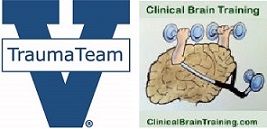When you’re dealing with a patient with an acute neurological change, you need to use an organized approach to insure you’re not distracted, and that you rule in or out some simple causes before they cause permanent neurologic damage (such as hypoxia and hypoglycemia). First, focus on the things that could kill the patient from a neurological perspective immediately. Do your ABC’s and then immediately check their pupils, do a rapid neurological exam to make sure they’re not grossly focal and once you’ve done that, you should quickly check if it’s something correctable.
Some key questions in your brain should be:
• Is there evidence of a focal change (blown pupils, hemiplegia, etc.) pointing you toward an acute vascular event.
• Could this be due to medication? What meds have they gotten in the last hour. If the medication record indicates that the patient received 8 milligrams of Morphine 15 minutes ago, and this was a high dose for this patient, you should immediately consider giving them Narcan.
• If you are dealing with a trauma patient, you should clear your ABC’s and get an immediate head CT to look for progression of problems.
• Also remember with the new guidelines on glucose control we may be seeing more and more hypoglycemic episodes so it’s a good idea to quickly check their glucose.



 Subscribe in iTunes
Subscribe in iTunes